Latest News
Tackling latency in next-gen gaming
Mathieu Duperré, CEO at Edgegap
Anyone that’s played a video game online has almost certainly experienced some kind of lag and connectivity issues. Despite huge infrastructure advances in the last few decades, latency remains a constant thorn in the side of gamers and detracts from the real-time experience that’s expected today.
Delivering a consistent experience to gamers playing on different devices with varying connection speeds – many of which are separated by thousands of miles – is a complex challenge. Massively popular online games like Roblox and Fortnite are just two of the many games which have benefited from years of investment into infrastructure in order to support millions of concurrent players. As the below chart from SuperJoost shows, multiplayer and online gaming is becoming the preferred way to play games amongst the most active gaming demographic, with all the technical challenges that this creates.
Games which can be played seamlessly across mobile, PC and console (so-called cross-play games) are also pushing the limits of what current internet infrastructure can deliver. Add in a new generation of streaming cloud gaming services like Stadia, Blacknut Games and Amazon’s Luna – plus Microsoft’s Game Pass and Sony’s revamped PlayStation Plus service, and you can see how the promise of console-quality performance over a broadband connection risks overloading networks that were never designed for this level of gaming.
So how can game companies, telcos and ISPs deliver on the performance promises being made to gamers? That’s where edge computing comes in.
Lag, latency and the Edge
When talking about latency it’s important to make it clear exactly what we mean. Latency refers to the amount of time it takes for game data to travel from one point to another. From the gamer’s perspective, it’s the delay between their command and seeing it happen in-game. How much latency a gamer experiences is dependent on the physical distance the data must cross through the multiple networks, routers and cables before it reaches its destination.
To use an extreme example, NASA’s Voyager 1 has made it about 14.5 billion miles from our planet so far, and it takes about 19 hours for its radio waves to reach us. Here on Earth, your latency is (hopefully) measured in milliseconds rather than hours; and gamers need around 30ms for the most optimal performance. Anywhere above 100ms can lead to noticeable lag and a frustrating experience.
This is where Edge computing comes in. As the name implies, Edge computing brings computation and data storage closer to the sources of data, placing it on the edge of the network where the performance gain is the greatest. As you’d expect, reducing unnecessary travel drastically speeds up the process providing an almost lag-free experience.
More players equals more chance for latency to be a problem
In the early days of gaming, local, couch play was part and parcel of the gaming experience. Today, a game where hundreds or even thousands of players are in the same session is nothing out of the ordinary, and there are Battle Royale games now, a whole genre of games where a hundred or more players are whittled down to a single winner.
The sheer scale of some online games dwarfs many of the most popular streaming services. Whilst Netflix remains the most successful streaming video site with 222 million subscribers, kids game Roblox has 230 million active accounts and Fortnite has over 350 million registered players. So if we assume these games reflect a growing trend, the demand on server networks is only going to increase, and gaming companies will have to look for more innovative solutions to continue meeting demand.
Cross-Platform
The ability for gamers on different devices and platforms to play and compete together is becoming an increasingly common feature of AAA multiplayer games like Apex Legends, Fornite and Call of Duty. EA Sports recently confirmed that FIFA 23 will be joining other heavy hitters in exploring cross-platform play. Considering the large amount of games on the market, and the various game modes for each game, studios are looking at crossplay to increase the amount of players who can play together. One of the main driver is to lower matchmaking time and prevent players from having to wait hours before opponents are ready to play with them.
From a latency perspective, different infrastructure across platforms means lag and downtime are far more likely. When it comes to cross-play, studios can’t use P2P (peer-to-peer) since console vendors don’t support direct communication (i.e. an Xbox can’t communicate directly with a playstation). On top of that, P2P may be limited by player’s home network (restrictive natting for example). That’s why studios typically use relays in a handful of centralised locations. Relays are seen as cheaper than authoritative server. They although have large flaws like making it harder for studios to prevent cheating, which is becoming more and more important with Web3 & NFT. This causes higherlatency since traffic needs to travel longer distances between players. For example, when Apex Legends went cross-platform, players were inundated with frame rate drops, lags and glitches.
Edge computing allows studios to deploy cross-play games as close as possible to their players, significantly reducing latency. Which can negate some of the delay issues around differing platforms.
VR and the Metaverse
Despite hitting shelves in 2016, VR is only now slowly making its way into mainstream gaming. Advances in technology have gradually improved the user experience, while also bringing the price of hardware down and closer to the mass market – not to mention the metaverse bringing renewed attention to the tech. But latency issues still present a serious hurdle to wider adoption unless it’s addressed.
Latency impacts the player experience far more in VR than in traditional gaming as it completely disrupts the intended immersive experience. A 2020 research paper found latency of over 30-35ms in VR, had a significant impact on players’ enjoyment and immersion, which was far lower than acceptable margins on a controller. But when it comes to the metaverse, achieving this might not be enough. Latency between headset and player has to be sub 5ms to prevent motion sickness.
In a recent blog, Meta’s VP, Dan Rabinovitsj, explained that cloud-based video games require a latency of around 75–150ms, while some AAA video games with high graphical demand require sub 35ms. Comparatively, Rabinovitsj suggests metaverse applications would need to reduce latency to low double or even single digits.
For better or worse, we’ve seen glimpses of what the metaverse has to offer already. Decentraland’s metaverse fashion week gave major brands like Dolce & Gabbana an opportunity to showcase virtual versions of their products. But attending journalists reported that the event was fraught with lag and glitches.
Gamers are a fickle bunch, so early adopters will simply move back to other games and platforms if they have poor initial experiences. Google’s Stadia promised to revolutionise gaming, but its fate was sealed at launch as the platform simply couldn’t compete with its competitors’ latency. Today, Google has ‘deprioritised’ the platform in favour of other projects.
If the metaverse goes to plan, it should encompass a lot more than traditional gaming experiences. But if it’s going to live up to players’ lofty expectations, akin to Ready Player One, more thought needs to be given to scalable and optimised infrastructure.
Unlocking next-gen gaming
The pace at which modern gaming is evolving is astounding, making the components discussed here work lag-free and as players expect will be a huge undertaking, and even more so when developers attempt to bring them all together in the metaverse.
The issue of latency may be less headline-grabbing than virtual fashion shows, NFTs and Mark Zuckerberg’s slightly unsettling promotional video, but the ability to seamlessly stitch all of these elements together will be critical in making the metaverse live up to expectations, and therefore, to its success.
Compliance Updates
California Gambling Control Commission Reviews Licensing and Ownership Transfers at September 18 Meeting

The California Gambling Control Commission (CGCC) convened for its scheduled public meeting to deliberate on a wide range of licensing and regulatory matters related to cardrooms, third-party providers, tribal gaming, and key individuals in the gambling industry. The Commission addressed ownership transfers, license renewals, regulatory compliance, and findings of suitability for tribal gaming employees and suppliers.
Highlights from the Meeting
Cardroom Licensing and Ownership Transfers
Commerce Casino (California Commerce Club, Inc.)
- Initial License Approval: The Commission recommended approving an initial cardroom owner license for James Murray, Director of the Commerce Casino, through March 31, 2027.
- Ownership Transfer: The Commission approved a share transfer from Marsha Gold to the Marsha L. Gold Revocable Trust, subject to the transaction closing within 180 days and written confirmation of compliance with imposed conditions.
- Successor Trustee Licensing: The license for Jill Anter Wieder, Successor Trustee of the trust, was also approved through March 31, 2027, pending the completion of the ownership transaction.
- Additional Conditions: The Commission imposed a detailed list of conditions on the license, including certification requirements, written transaction confirmations, and mandatory legends on stock certificates to ensure regulatory compliance.
Napa Valley Casino (BVK Gaming, Inc.)
- Ownership Transfer: Similar to Commerce, the transfer of shares from Von Altizer to the Von Altizer 2017 Revocable Trust was conditionally approved.
- Successor Trustee Licensing: Applications from Christopher and Bobby Huang, successor trustees and contingent beneficiaries, were approved through May 31, 2026, contingent upon the transaction’s completion.
- Interim License Conditions: The Commission imposed a set of conditions mirroring those required for Commerce Casino, ensuring the integrity of ownership transitions.
Renewal and Interim Licenses
Seven Mile Casino (Stones South Bay Corp.)
-
A new interim renewal license was approved through September 30, 2027, with prior licensing conditions officially removed.
Commerce Casino Directors
- Rick Contrucci: The Commission opted to abandon the renewal application.
- Lysa Grigorian: The application was referred to an evidentiary hearing, and an interim license was issued through March 31, 2027.
Other Cardrooms
- Limelight Card Room: License renewed through March 31, 2027.
- Lucky Chances Casino: A 90-day extension was granted through December 31, 2025, with strict restrictions on property access and communications for Rene Medina, tied to a 36-month probationary period.
- North Coast Casino and The River Card Room: Both granted 60-day extensions with multiple compliance conditions required prior to opening or continuing operations.
Third-Party Proposition Player Services
Renewals and Initial Licenses Approved
- Owner-Type Licenses for Global Player Services and Players Edge Services were renewed through 2027.
- Employee-Type Licenses: Dozens of third-party proposition player service employees were approved or renewed, including workers from Knighted Ventures, Blackstone Gaming, and Acme Player Services.
- Conditions on some licensees, such as Glenn Kaboua, included proof of fine resolution every 90 days.
Tribal-State Compact Licensing
Gaming Resource Suppliers
-
Everi Games Inc. and LNW Gaming, Inc. received approval for initial and renewal suitability findings, with licenses valid through early 2026.
Key Tribal Employee Licensing
-
A significant number of tribal casino employees across the state received initial or renewed findings of suitability. These included employees from:
-
Chumash Casino Resort
-
Thunder Valley Casino Resort
-
Fantasy Springs Resort Casino
-
Graton Resort & Casino
-
Hard Rock Hotel & Casino Sacramento, among many others.
-
-
The Commission emphasized continuous monitoring of suitability, especially for applicants under conditional approval like Tatianna Wren, who must provide quarterly updates on efforts to resolve outstanding fines.
Key Individual Decisions
-
Huy Dang: The Commission approved the renewal of Dang’s Key Employee License through September 30, 2027, removing prior conditions related to court-mandated classes and debt resolution.
Consent Calendar Items
-
Items 15 through 21 included approvals for initial and renewal licenses for various employees, work permits, and tribal key employees. All items were approved per staff recommendations.
Conclusion
The September 18, 2025, meeting of the California Gambling Control Commission underscored the Commission’s ongoing role in maintaining transparency, accountability, and integrity in the state’s gambling industry. With careful review of ownership changes, key personnel, and operational compliance, the CGCC continues its commitment to fair and responsible gambling practices in California.
For full details and future updates, visit the California Gambling Control Commission website
The post California Gambling Control Commission Reviews Licensing and Ownership Transfers at September 18 Meeting appeared first on Gaming and Gambling Industry in the Americas.
Latest News
Groove Technologies and BetOnGames Forge Strategic Partnership

In a landmark move, platform and aggregator Groove Technologies has announced a strategic partnership with BetOnGames, the RNG game provider arm of BETCORE. This collaboration brings together Groove’s enterprise-grade platform, boasting over 15,000 games from 150+ top-tier providers, and BetOnGames’ lightweight, high-performing content, optimised for real-world conditions.
The alliance promises to deliver unparalleled scalability, engagement, and profitability for operators worldwide.
Groove’s cutting-edge platform is renowned for its precision, scalability, and advanced player engagement tools, making it a powerhouse for operators who demand excellence. By integrating BetOnGames’ portfolio featuring 100+ fast-loading, low-data titles across slots, crash, and instant-win formats, Groove further solidifies its position as the go-to solution for diverse markets, including regions with limited internet coverage.
Rachel Tourgeman, Head of Partnerships at Groove, emphasised the strategic value of the partnership: “BetOnGames’ adaptability and high-converting content perfectly complement Groove’s mission to deliver unmatched performance for operators. Their lightweight design, multilingual UI, and seamless payment integrations, including UPI, QR-wallets, and crypto, make them an ideal partner for both emerging and mature markets. Together, we’re setting a new standard for player engagement and operational efficiency.”
BetOnGames has built a reputation for reliability, offering RNG-certified titles with competitive RTPs (96–97%) and 24/7 technical support. Popular titles like Aerobet (crash-style, 97% RTP), 100 Mega Hot (classic slot, 97.12% RTP), and Bicho da Sorte 25 (lottery-style, 92.26% RTP) cater to a broad spectrum of player preferences, ensuring high retention and conversion rates.
Peter Korpusenko, CEO of BETCORE, highlighted the significance of the collaboration: “Partnering with Groove allows us to expand our reach exponentially while maintaining the speed, fairness, and lightweight efficiency that define BetOnGames. Groove’s robust backend and analytics tools empower operators to maximise our content’s potential, driving growth in even the most competitive markets.”
With full licensing under the Curaçao Gaming Control Board, integrated responsible gaming tools, and AML compliance, BetOnGames provides a secure and scalable foundation for operators. Combined with Groove’s industry-leading platform, the partnership ensures seamless onboarding via Groove’s single-API, optimised cash flow, and data-driven decision-making.
As iGaming continues to evolve, Groove and BetOnGames are poised to lead the charge, delivering a dynamic, player-centric experience that transcends borders and technical barriers. For operators seeking a competitive edge, this collaboration represents the future of iGaming today.
Yahale Meltzer, Co-Founder and COO at Groove, underscored the long-term vision: “This partnership isn’t just about adding games, it’s about enhancing ecosystems. BetOnGames’ performance in low-bandwidth environments and localised payment options align perfectly with our commitment to inclusivity and innovation. Together, we’re not just meeting operator needs; we’re anticipating them.”
The post Groove Technologies and BetOnGames Forge Strategic Partnership appeared first on European Gaming Industry News.
Latest News
Week 37/2025 slot games releases

Here are this weeks latest slots releases compiled by European Gaming
Leroy wakes up every day with a smile on his face! Why you may ask? Well executing is a dirty job but Leroy just loves to swing his axe in Nolimit City’s latest release, Dead Men Walking. The chopping block features a 3-3-3-3-3reel setup with three Fire Pits above the reels each linked to a unique base game feature.
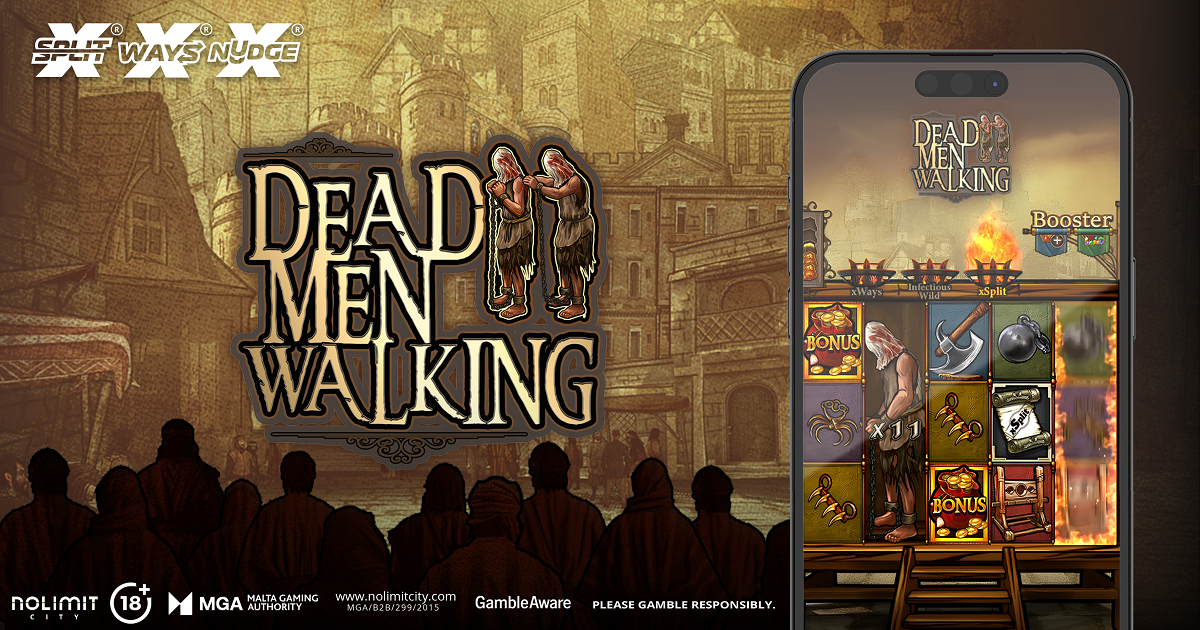
Amusnet has released 100 Art of Gold. This new online casino release brings together the elegance of art and the dynamic feel of modern slot design. Built on a 5-reel layout with 100 fixed paylines, the game stands out with its refined aesthetic and carefully crafted details.

Play’n GO heads skyward with Rosy Orbit Treasure Turn™, a radiant slot where gravity is optional and innovation is key. A mysterious princess, a faithful fox, and a cherished rose – Play’n GO blends character-driven charm and fresh mechanics in Rosy Orbit Treasure Turn™.
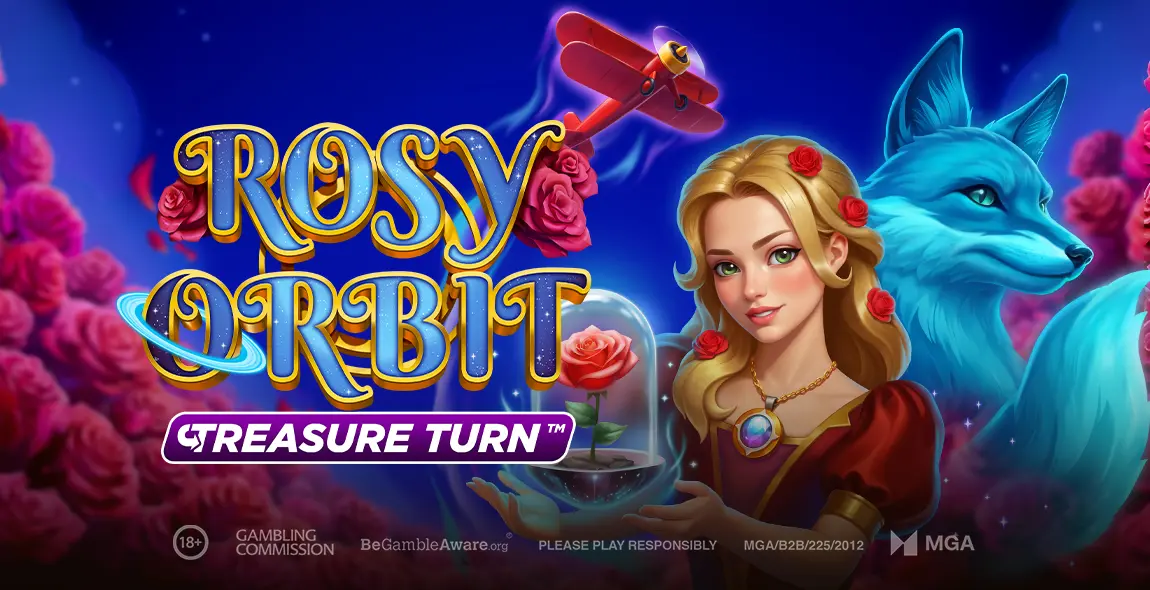
Burning Classics 2 is here to ignite your winnings with all the fiery thrills of the original, plus even hotter rewards. The sequel to Booming Games’ most popular game, Burning Classics, keeps the classic 5×3 grid and 20 variable paylines, along with the iconic stacked symbols, including stacked wilds.
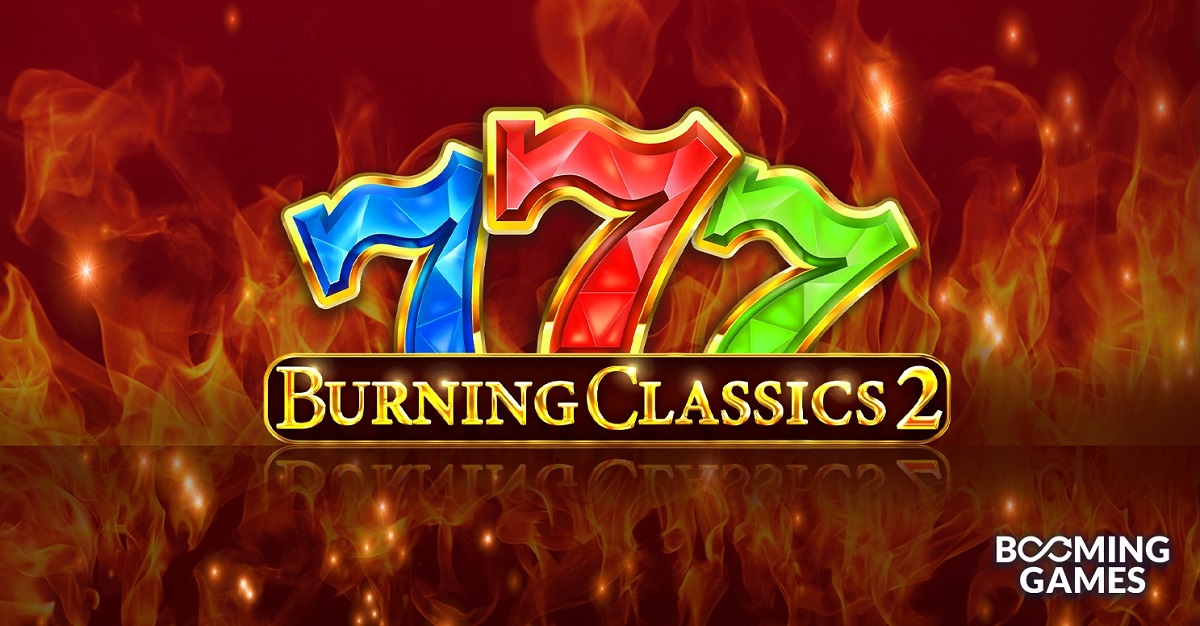
Blueprint Gaming™ takes one of its strongest internationally performing series to new heights in Cash Strike Hotstepper 2, with Super Strike and mystery symbols among the new additions designed to elevate the gameplay experience on offer.
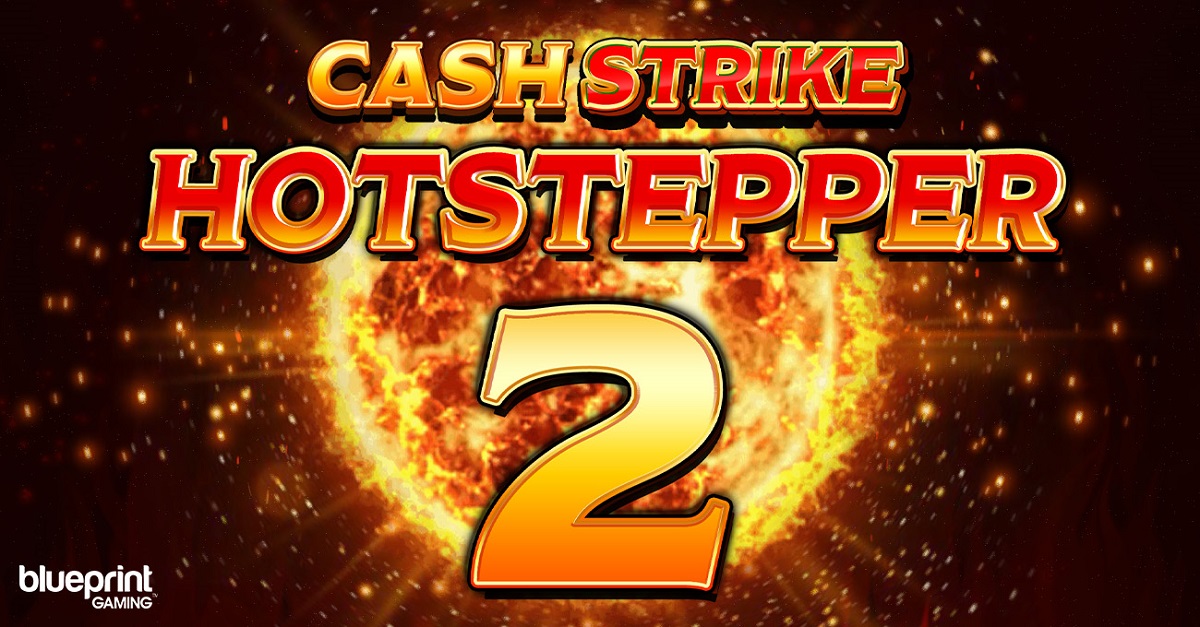
BGaming is excited to announce the launch of Bonanza Trillion, the highly anticipated sequel to the hit slot, Bonanza Billion. The game builds on the success of its predecessor while also upping the ante with a range of captivating features, enhanced visuals, and higher volatility. Bonanza Trillion upgrades the classic fruit and crystal theme that players loved from the original title.
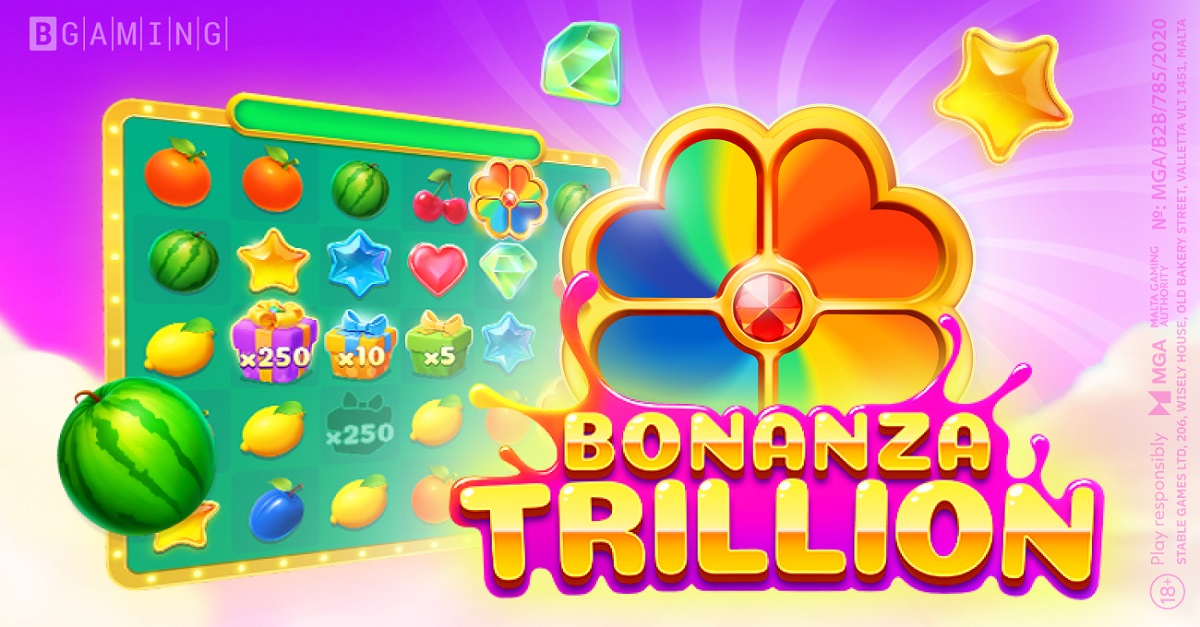
Step into the heart of the untamed frontier in Bison Moon – Power Combo, a slot from Northern Lights Gaming that captures the rugged beauty and boundless thrill of the Great Plains with plenty of big wins in store. This action-packed slot introduces the provider’s latest mechanic, Power Combo, where three unique Scatters unlock incredible bonus features via its proprietary Link&Win feature.
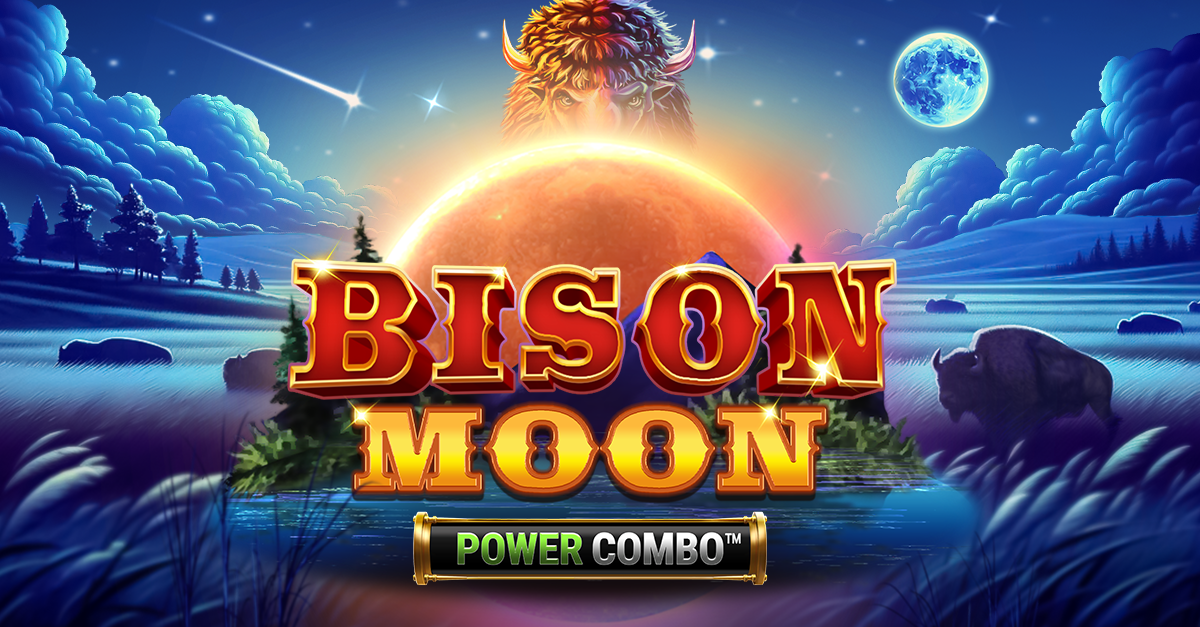
The vast plains are alive with the sound of rampant hooves, the roar of predators, and helpful animals along the way. ELA Games proudly presents its latest release, Buffalo Force, an energetic game that celebrates the sheer power of nature.
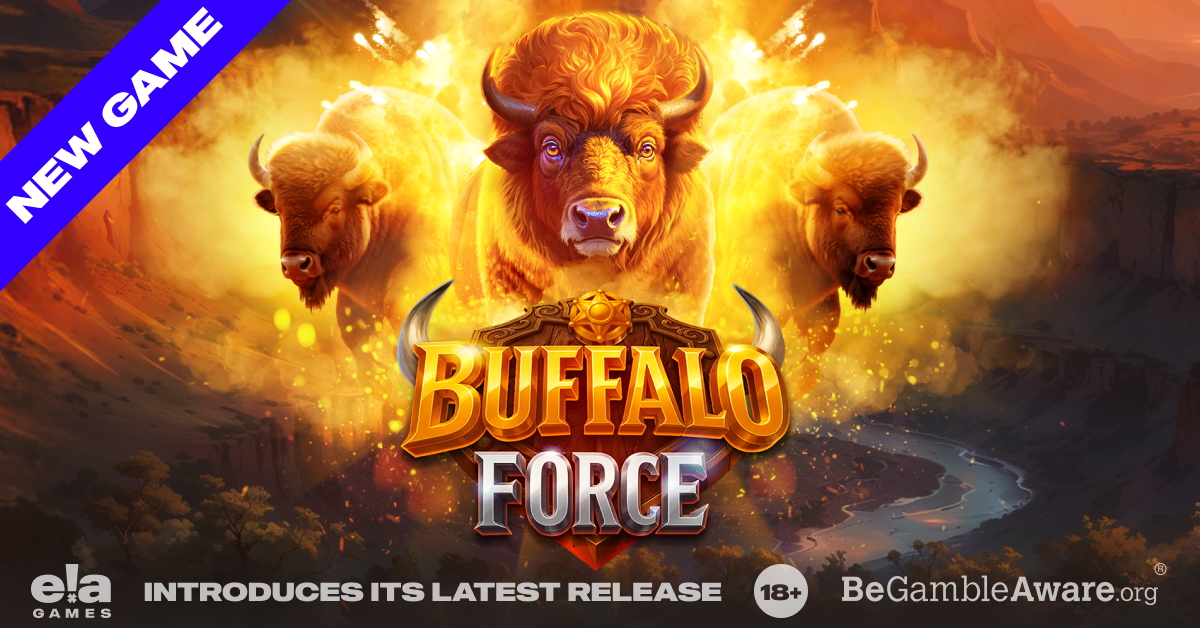
Spinomenal is welcoming players to ascend to Valhalla with its latest mythology-inspired slot, Majestic Odin. The game joins Spinomenal’s hugely popular Demi Gods series. Majestic Odin is set against a breathtaking Nordic landscape of towering mountains, deep fjords, and glowing torches that frame the game with mythic grandeur.
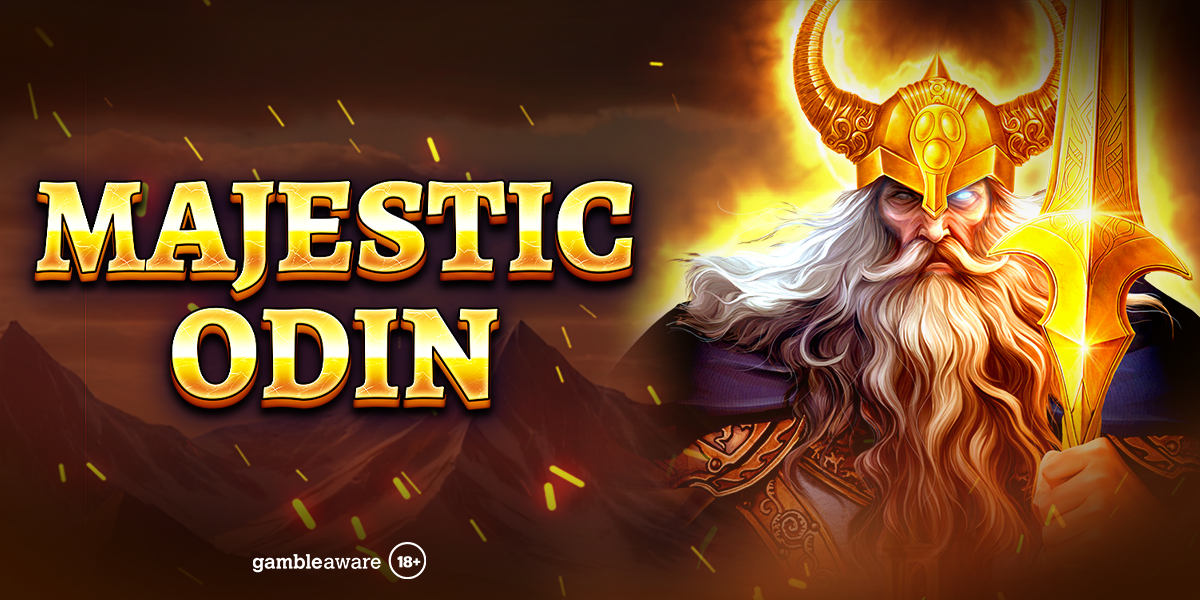
The post Week 37/2025 slot games releases appeared first on European Gaming Industry News.
-

 gaming3 years ago
gaming3 years agoODIN by 4Players: Immersive, state-of-the-art in-game audio launches into the next generation of gaming
-
EEG iGaming Directory9 years ago
iSoftBet continues to grow with new release Forest Mania
-
News8 years ago
Softbroke collaborates with Asia Live Tech for the expansion of the service line in the igaming market
-
News7 years ago
Super Bowl LIII: NFL Fans Can Bet on the #1 Sportsbook Review Site Betting-Super-Bowl.com, Providing Free Unbiased and Trusted News, Picks and Predictions
-
iGaming Industry8 years ago
Rick Meitzler appointed to the Indian Gaming Magazine Advisory Board for 2018
-
News7 years ago
REVEALED: Top eSports players set to earn $3.2 million in 2019
-
iGaming Industry8 years ago
French Senator raises Loot Boxes to France’s Gambling Regulator
-
News7 years ago
Exclusive Interview with Miklos Handa (Founder of the email marketing solutions, “MailMike.net”), speaker at Vienna International Gaming Expo 2018







